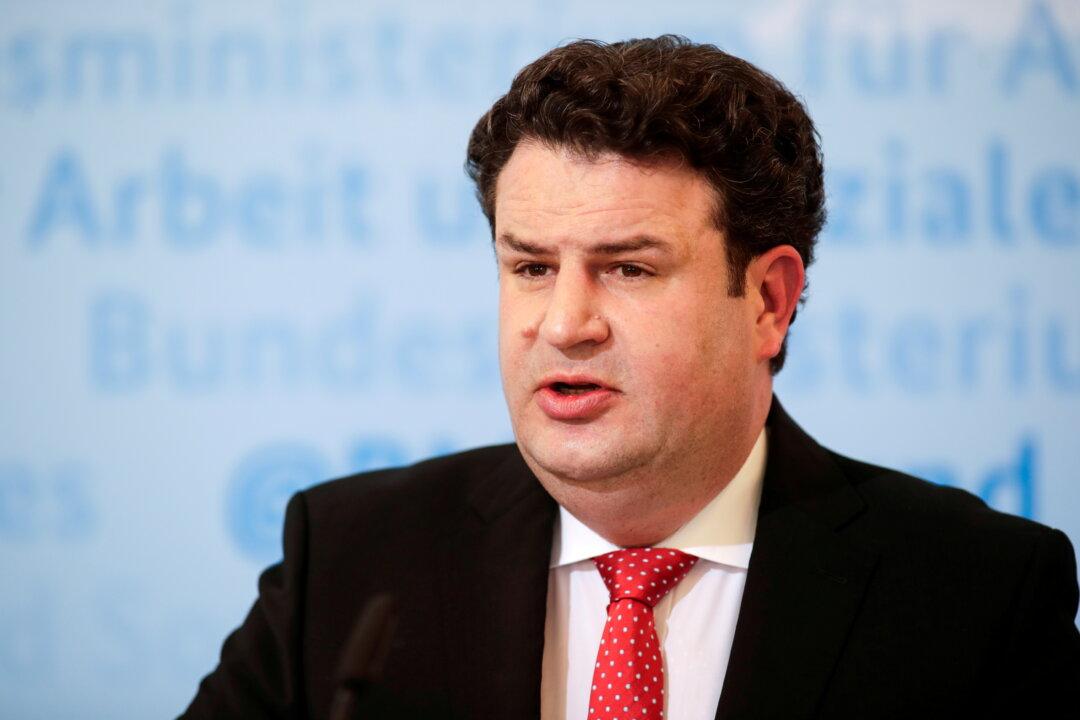The German government rejected a suggestion on Wednesday that would give employers the right to find out whether their employees are vaccinated against the CCP (Chinese Communist Party) virus.
Hubertus Heil, the minister of labor and social affairs, said that Germany has strict privacy laws and employers cannot force workers to show such information, although he agreed that pragmatic solutions are needed for places that are at a greater risk of transmitting the CCP virus, such as hospitals or prisons.





